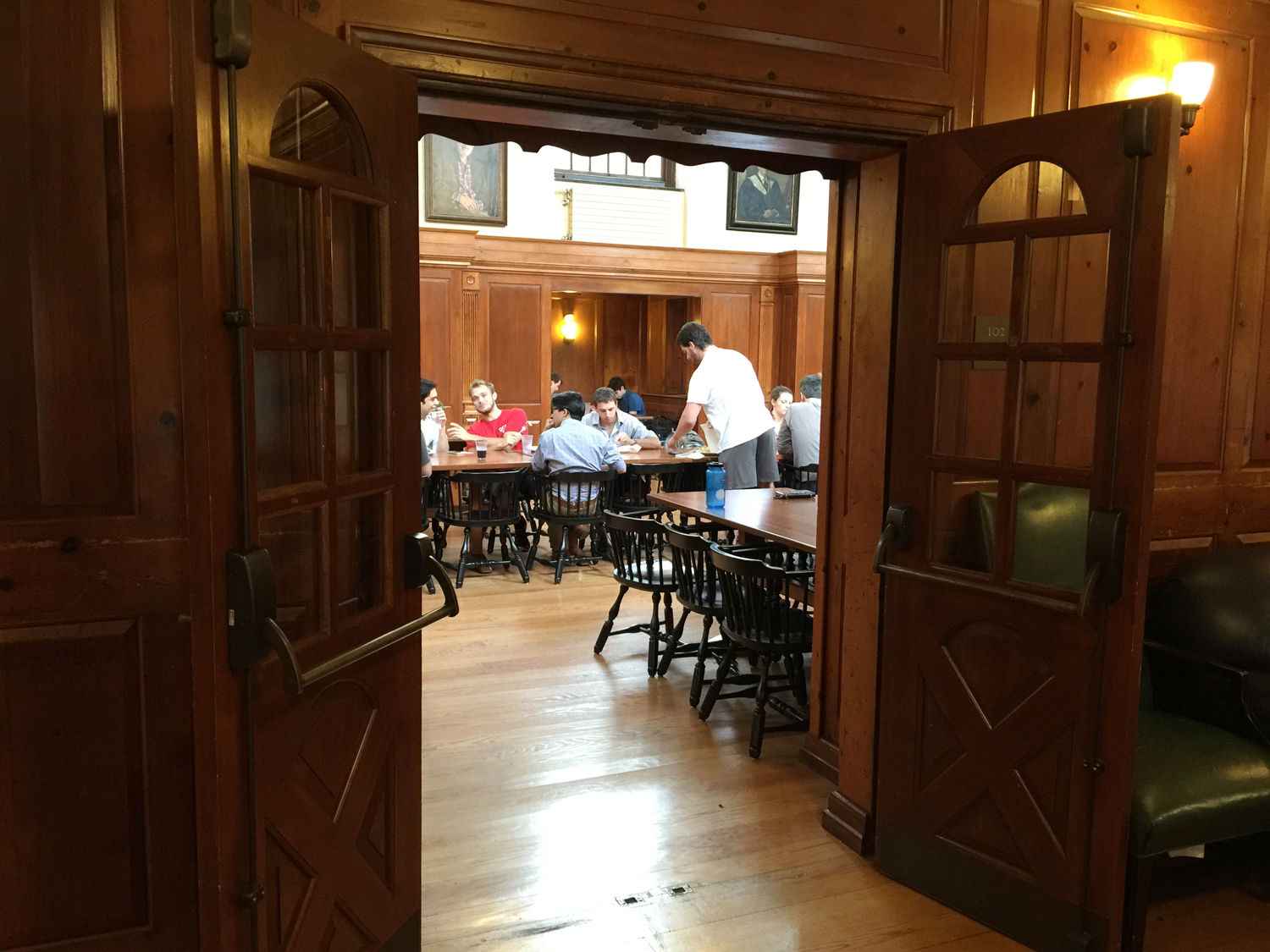
After emerging victorious from the “Chun Challenge for Change” earlier this month, three sustainability-minded students are working to establish a program that will allow students to check out reusable dishware for group events in an effort to encourage waste reduction on campus.
On April 3, Victoria Lim ’21, Candice Wang ’21 and Megan Ahern ’21 — all board members of Get Responsible for Earth’s Environment Now, or GREEN, a campus group pushing for increased sustainability among students — won the first ever Chun Challenge on April 3 with their pitch for “Shareware.” The challenge, a collaboration between Tsai Center for Innovation Thinking at Yale and Dean of Yale College Marvin Chun, encouraged students to team up and present their ideas to improve campus life, particularly in the areas of sustainability, mental health and the sense of belonging at Yale. Winners took home two prizes: dinner with Chun and $500 to put toward their project.
In an interview with the News, the three students said that Shareware would be a free dishware checkout system that student groups can use for events involving food. Student group leaders would be responsible for taking inventory and returning the dishes, which would then be washed in dining hall dishwashers, after the events. Lim said that the team plans to put its $500 of winnings from the challenge toward purchasing its first 100 plates and sets of cutlery.
“Yale students blow through disposables at a crazy rate for all the events that they host,” Ahern said. “This is a free program that allows them to have an alternative, because it’s hard to on campus, when owning things like dishware is not necessarily feasible when you don’t have a dishwasher and you don’t have access to those things, so this is financially attractive and also sustainably attractive.”
Wang said the idea for Shareware was born this January when she was cleaning up trash after her 20th birthday celebration. At the party, Wang and her friends ate cake from Claire’s Corner Copia using paper plates and plastic forks. She said that the large amount of waste generated by that party alone inspired her and the rest of the team to think about ways for students to reduce waste at extracurricular and other social gatherings, leading to the conception of Shareware.
“I filled up with these two huge trash bags full of disposables, and I realized that this happens at almost every birthday party and also [at] student club gatherings, banquets, et cetera,” Wang said. “We got together, and we thought, ‘How can we change this?’”
According to Ahern, the Shareware team is currently working out logistics with Berkeley College to launch a pilot program there this fall. She added that the team has discussed the idea with several student organizations — including the Yale Debate Association, the Yale Symphony Orchestra and the News — to ask what they thought about the potential program, and the groups said that they would use it if it existed.
Ahern stressed that while Yale has set forth many institutional goals for sustainability for the next six years, there are few opportunities for students to contribute toward these goals, and many students are not aware of the volume of waste they produce.
“I think students are our most powerful agents in this,” Ahern said. “I just want Shareware to normalize this heightened awareness of disposability in student culture.”
Ahern added that she hopes that the program will be a way to “give students the tools” they need to pitch into the University’s waste reduction goals.
At the Chun Challenge pitch-off event earlier this month, a total of 16 student teams presented their ideas. Chun said that he was “extremely happy” with the event’s format — which required participants to prepare three-minute presentations explaining their ideas to a panel of judges, which included Chun — and its outcome in its inaugural year.
“I really liked the range of issues that they were tackling,” Chun said. “There were just a lot of really, really good ideas. … Students give me good ideas all the time, but to be able to have that many good ideas in two hours was just a neat way to do things.”
Chun told the News that the pitch for Shareware appealed to the judges because it was a “very manageable but practical idea that addressed sustainability in a very good way.” He added that he would like to repeat the event in future years if Tsai CITY is able to organize it again. But next time he would like to offer more than one prize in order to recognize even more innovative student ideas.
Yale released its sustainability plan for 2025 in 2016 — the year after 193 United Nations member states adopted sustainable development goals for 2030.
Asha Prihar | asha.prihar@yale.edu







